Two months ago, I sat once again at the bedside of a loved one who would soon take her final breath. My grandmother, Lola Betty, passed away twelve years after my mother, her eldest daughter and my fiercest protector, died. I had been with them both in their final days, bearing witness to what the body remembers and what the soul longs for as life ebbs away.
When my mother was nearing the end, her voice grew faint, almost childlike, as she called out “Mame,” her word for mommy. She was reaching for her own mother. Years later, as Lola Betty drifted toward the same horizon, her fading eyes seemed to see my mother waiting, and she whispered after her. Mother and daughter, still bound to each other even as the veil closed in.
It made me wonder: in the most vulnerable moment of our lives, who do we call for?
The Psychology of Our Last Calls
Psychologists say that in the final moments of life, the mind often reverts to its deepest imprints. The subconscious strips away pretenses, careers, possessions, even the roles we think define us. What rises instead are the primal bonds— the people who gave us safety, devotion, and meaning.
To call for a mother, a father, or a beloved partner near the end is not regression. It is return. It is the psyche’s way of reaching back to the wellspring of love that sustained us. Neurologists even suggest that the dying brain sometimes produces vivid hallucinations or visions of loved ones gone before. Whether those visions are biochemical or spiritual, they comfort. They remind us that we were once held, once loved, and never fully alone.
My Mother, My Grandmother, and Me
My relationship with my Lola Betty had never been easy. As a child, I exhausted her. I disappeared into the trees and the streets when she wanted me safe at home. I refused her rosary prayers, uninterested in the beauty rituals she clung to. I was dark-skinned, unlike the fair-skinned, god-fearing grandchildren she favored.
But when my mother died, a new tenderness emerged between us. My grandmother began clinging to my arm in a way she never had before, her eyes softening with an affection I had not known. She looked at me and, in some way, saw her lost daughter. That bond of devotion, the same devotion my mother had shown her siblings and her widowed mother, flowed toward me in those final years. Through grief, she reached for connection, and I became her vessel for continuity.
Devotion was their inheritance, passed from my grandmother to my mother, and from both of them, imperfectly yet indelibly, into the life of our family. It was a devotion to kin above self. It was why my mother set aside her own dreams to support her husband and children. And it was why my grandmother endured widowhood for half a century with enduring strength, raising all eight of her children on her own.
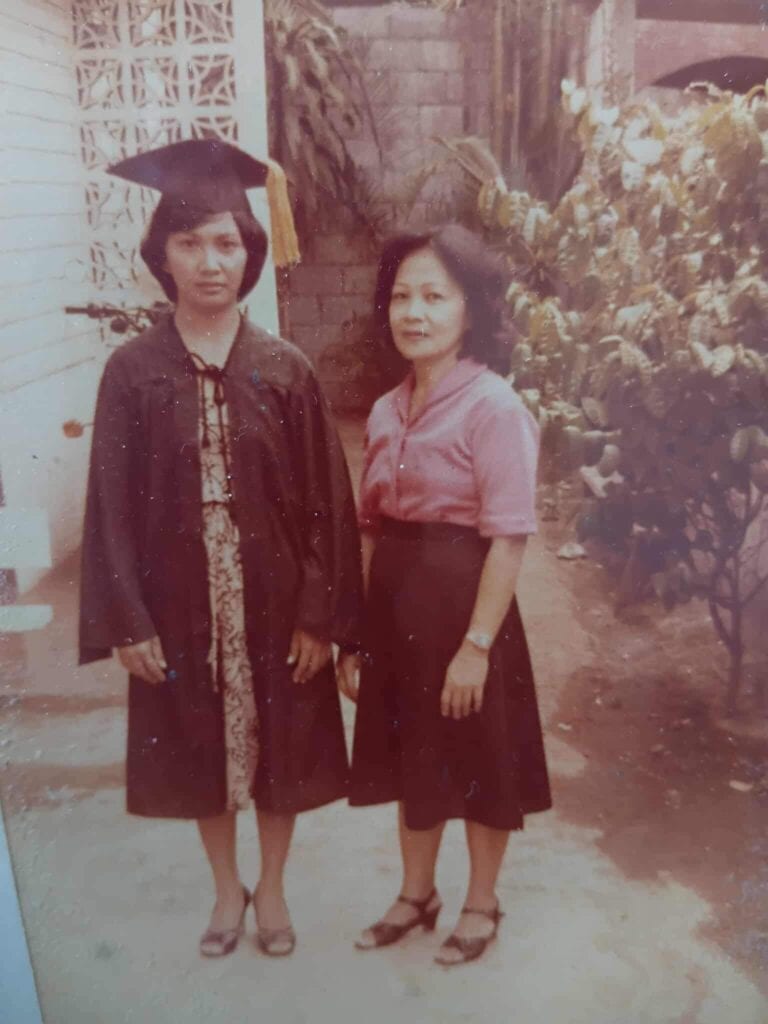
Who Will I Call?
Watching them both, I began to ask myself: who would I call for in my own final days?
I suspect it will be my mother. Despite our conflicts, she is the one who fiercely protected me, who carried the weight of our family, who modeled devotion with a strength that has become the backbone of my own life. Her death shook me so deeply that it set me on the global journey I now recount in my memoir, The World Is My Mirror, a journey that became as much about geography and the landscapes I crossed as it was about healing, reinvention, and finding home within myself.
Perhaps, in my last moments, I too will call out for her. This would not be a sign of unfinished growth, but a return to the one whose devotion made me.
READ MORE: Welcome to My New Chapter: Introducing the Memoir, the Mission, and the Movement
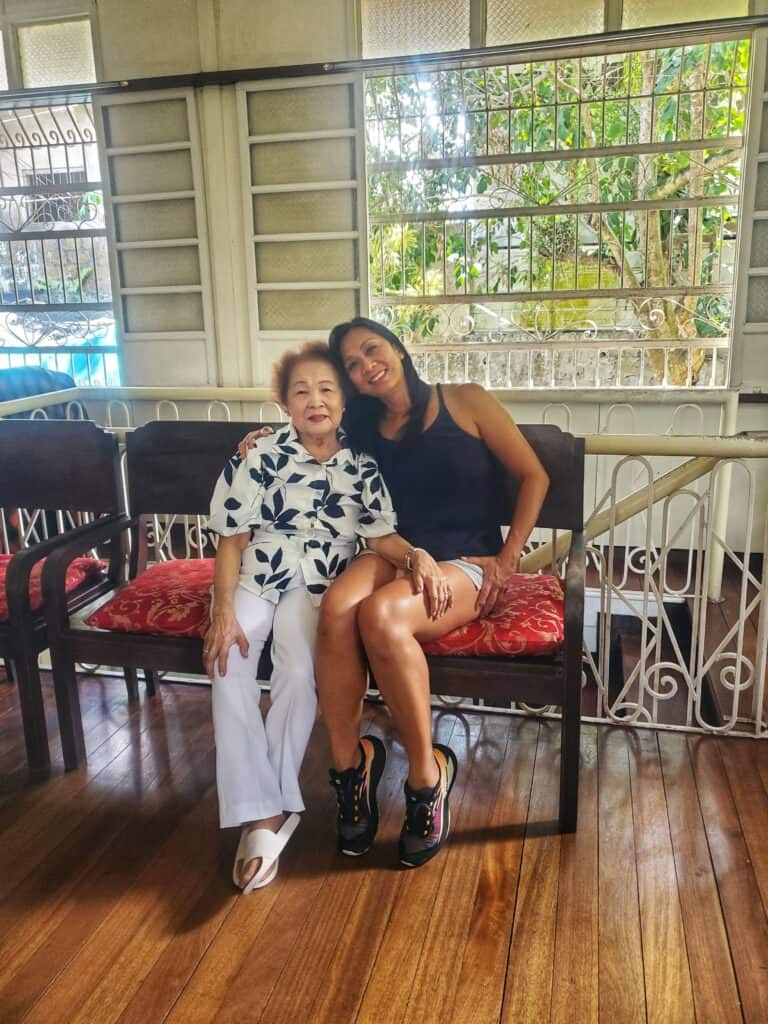
The Thread That Remains
To be at the bedside of the dying is to witness the letting go of all that is superficial. What remains is not the tally of achievements or possessions, but the thread of human connection. We reach instinctively for those who shaped us, even if through pain, conflict, or imperfect love.
So when we ask, “Who do we seek in our deathbeds?” the answer is both simple and profound. We seek the person who embodied devotion to us, the one whose presence reassured us that we mattered. That presence may be mother, father, grandparent, lover, child, or God. It may be someone who has long departed, but whose imprint is etched into our very sense of self.
In the end, death is not only a departure. It is a return.
And so I leave you with this question: when your own final days come, whose name will you whisper? Who will you seek?

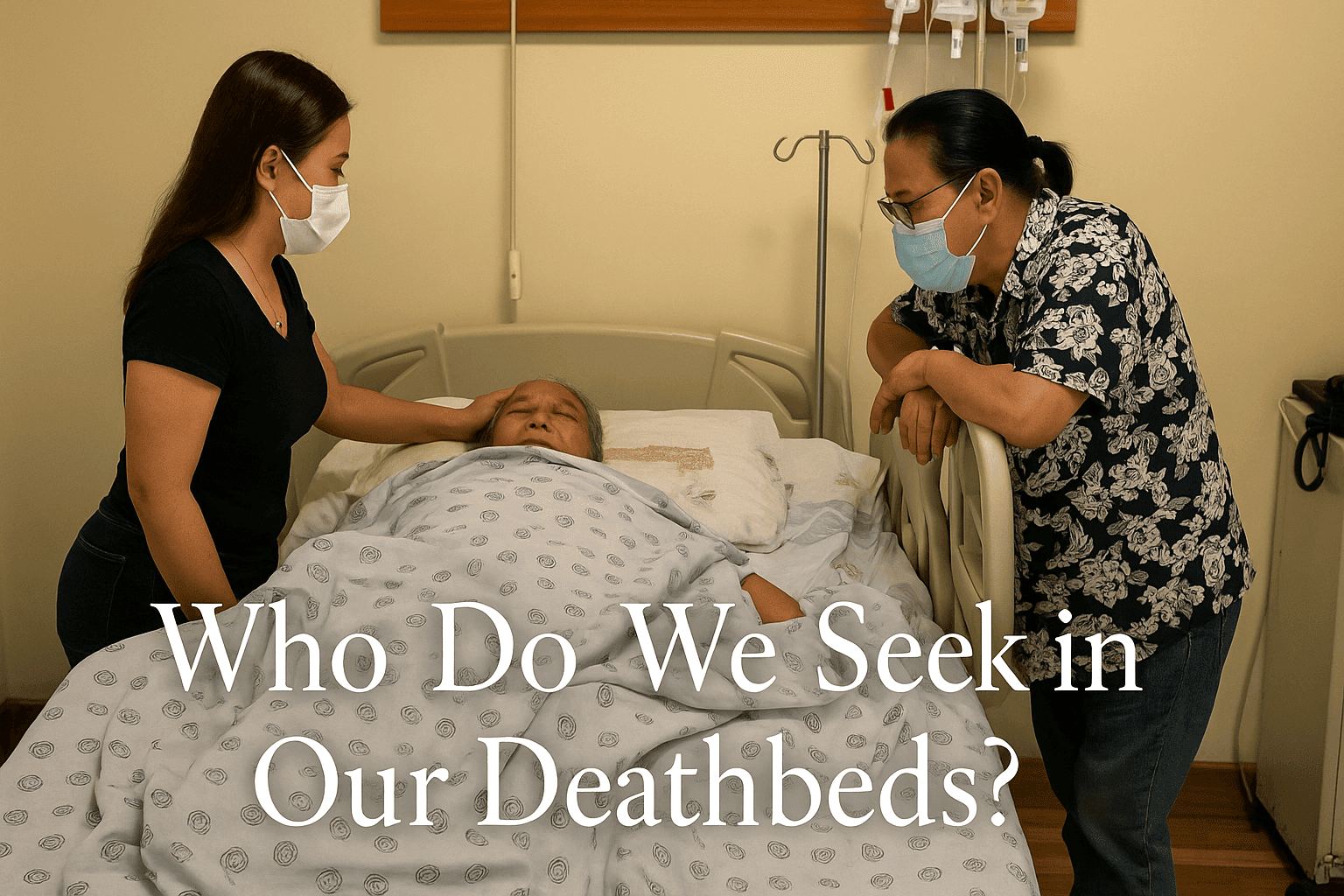
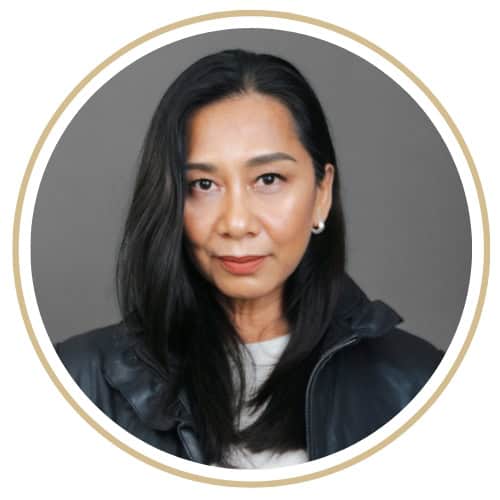
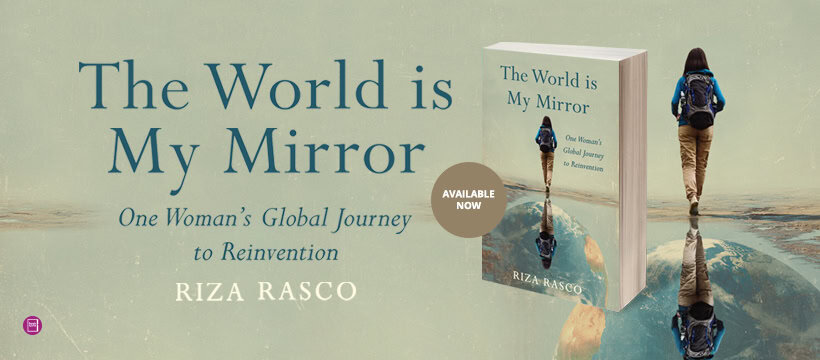

Can you be more specific about the content of your article? After reading it, I still have some doubts. Hope you can help me.
I don’t think the title of your article matches the content lol. Just kidding, mainly because I had some doubts after reading the article.
Can you be more specific about the content of your article? After reading it, I still have some doubts. Hope you can help me.
Thank you for your sharing. I am worried that I lack creative ideas. It is your article that makes me full of hope. Thank you. But, I have a question, can you help me?
Your article helped me a lot, is there any more related content? Thanks!
Your article helped me a lot, is there any more related content? Thanks!
I don’t think the title of your article matches the content lol. Just kidding, mainly because I had some doubts after reading the article.
Thanks for sharing. I read many of your blog posts, cool, your blog is very good.